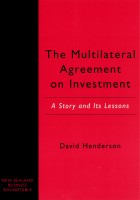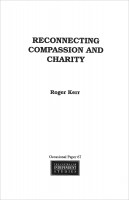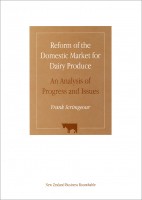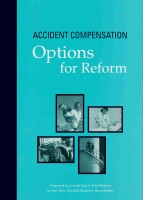
Principles for a Free Society
The kind introductory remarks of Mr Judd provide a valuable framework for my topic. And his invocation of Frederic Bastiat offers an instructive, if unintended, way to frame this lecture. Read more


The kind introductory remarks of Mr Judd provide a valuable framework for my topic. And his invocation of Frederic Bastiat offers an instructive, if unintended, way to frame this lecture. Read more

It was only with some trepidation that I accepted your invitation to speak about the Treaty of Waitangi and the rights of indigenous people, a most controversial subject in New Zealand. At one level, the debates here replicate those that are occurring elsewhere in the world. Read more

The topic of discrimination in the law of employment is one of the growth industries of our time. The issue covers the gamut from race, to sex, to disability and to age. Read more

Norman Barry defends the morality of Anglo-American business, a form of which is practised in New Zealand, against critics who argue that market morality has to be imposed from outside. He claims that proposals to impose wider forms of ‘social responsibility’ on firms would be bad for business and, therefore, for society. Read more

The case for stadium and event subsidies is a weak one. The economic arguments in favour of such subsidies do not succeed. Read more

The subject of this paper is a failed venture in international economic cooperation, the Multilateral Agreement on Investment (MAI). I consider the reasons for the failure and its wider implications. Read more

Remember 1994? That was the year that marked a decade of economic reforms in New Zealand. Read more

Over the past two decades, economic policies across the world, and economic systems with them, have changed their character, their complexion. To an extent that few anticipated before the event, a large and growing array of governments have adopted measures, and in some cases whole programmes, with the intention and the effect of making their economies freer, more open and less regulated: both individually and in concert, they have taken the path of economic reform. Read more

Supporters of big government and the welfare state regulary accuse their opponents of lacking 'compassion'. But how much have they thought about what compassion really involves? Read more

There is no summary available. Read more

Dr Green's proposals for reform to welfare, health, education and retirement income policies in New Zealand (From Welfare State to Civil Society (1996)) are reviewed by a combination of friendly and hostile critics. This collection of reviews contributes to the continuing debate about social policy. Read more

As an engineer by training, I confirm the wisdom of the saying that when you are in a hole you should stop digging. That is the first step towards formulating a sensible plan for getting out. Read more

This study provides additional reasons why the government should avoid delay in implementing its decision to remove the statutory backing of producer boards. Previous work sponsored by the New Zealand Business Roundtable (NZBR) on the consequences of granting export monopolies to producer boards has pointed to inefficiencies associated with the exclusion of competition in export marketing. Read more

Focusing on accidents that involve bodily injury, the authors recommend far-reaching reform of New Zealand's accident insurance arrangements. The report deals with insurance market issues, including compensation of the injured and rehabilitation, and puts the case for abandoning state monopoly provision. Read more